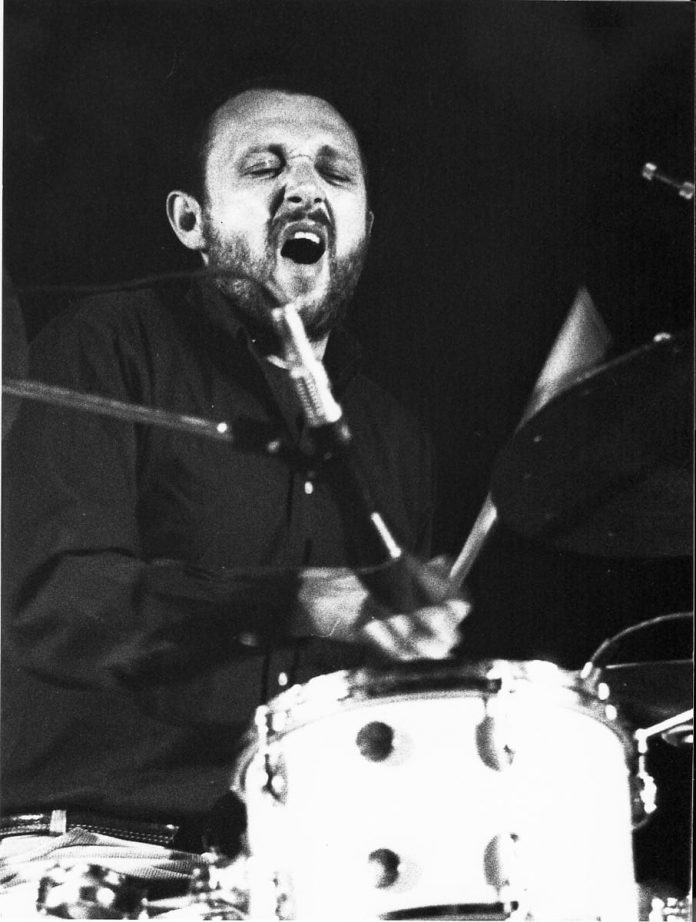This double billing of free music demonstrated both the best and worst aspects of the genre. Maybe it proved too much at one sitting for much of the audience, which was well-trimmed around the edges before the end of Plough’s set.
Amalgam began the evening (26/1/81) with one long improvisation that lasted around an hour. Their music relies only minimally on melodic development, and instead exploits group sound textures, different volumes, duet interludes, in short fully exploring the potential of the four instruments involved: guitar, bass, saxophone and drums.
With so many elements at hand it would be easy to produce an amorphous mess, but the empathy and common language that the group have developed served them well, and the music was for the most part ordered and logically progressive, displaying a richness of climax and resolution.
Plough, by contrast seemed to take off and cruise at the same treetop altitude throughout. Little variety emerged from a music that seemed largely rootless, and frustrated the listener in a search for a frame of reference or development. There wasn’t the same feeling of cooperation or mutual discovery that characterised Amalgam. Rarely did they seem to work together, rather in spite of each other, so that moments of unity seemed coincidental. Which illustrates also the risk of free music, since often this group have produced extremely satisfying sessions.
















